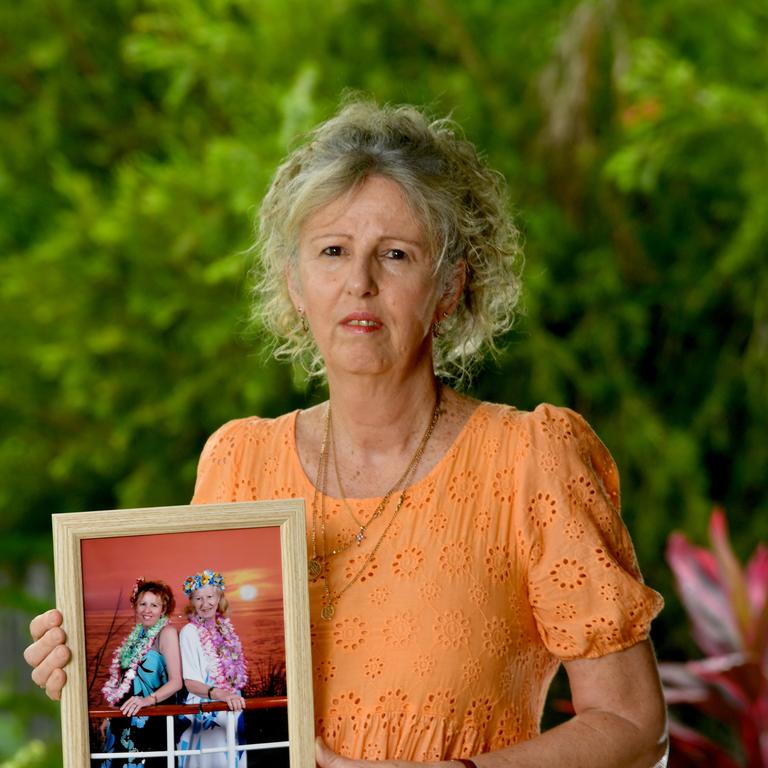Qld VAD inquest: Grieving man dies after ingesting wife’s VAD dosage
Queensland’s voluntary assisted dying scheme is under the microscope just 12 months after it was made legal with an inquest finding key areas for improvements.

QLD News
Don't miss out on the headlines from QLD News. Followed categories will be added to My News.
Queensland’s voluntary assisted dying scheme is under the microscope after a grieving widower died by ingesting a lethal substance that had been made available for his wife who passed away without using it.
Coroner David O’Connell who is investigating the man’s death at an inquest in Brisbane told the couple’s daughter, who remains supportive of voluntary assisted dying, that it was an important area where some improvement could be made.
Counsel Assisting John Aberdeen said Queensland’s voluntary assisted dying (VAD) scheme began in January 2023 and had accepted 245 people in its first six months.
Just over half of those people had elected to have a life ending substance administered by a medical practitioner and the balance chose self-administration.
The wife of a man, known only as ABC, chose the latter after suffering end stage cancer.
Her husband of nearly 60 years, ABC, was nominated as the contact person - a role which required him to return any unused VAD substance within 14 days of his wife dying or revoking her decision to self administer the substance.
The inquest heard a specialist VAD team from Brisbane drove to the regional area where the couple lived to hand over the VAD substance.
During the handover, which occurred at a hospital, the couple’s daughter said the VAD team were empathetic and “very concise”, checking with her mum that she wanted to continue with VAD and explaining to the husband his responsibilities as the contact person.
She said her father took the VAD substance to their home - where the mother was intending on taking it - and locked it away
“He took the fact it was a controlled substance quite seriously in regards to safekeeping it,” she said.
“(He was) by the book always has been”

The mother was then readmitted to hospital due to her cancer symptoms which prevented her taking anything orally.
As a result the woman, who also contracted Covid at hospital, revoked her decision to self administer the VAD substance.
This triggered the 14 day period during which the husband as contact person was required to take the VAD substance to a pharmacy for disposal.
At that stage the husband had Covid as well and was frustrated at not being able to see his wife, the inquest heard.
The wife died a short time later in hospital causing the husband to struggle with grief and also Covid symptoms.
During the period the VAD team called a number of times and reiterated the need for the VAD substance to be returned.
The daughter said it was decided they would return the VAD substance when her father went to collect his script from the pharmacy.
One day before this was to happen the daughter headed out to do some errands and when she returned she found her father deceased in a chair and next to him on a table was the VAD substance box.
The daughter told the court she was still “200 per cent behind” the VAD scheme but some of the details in the booklet could be better highlighted.
“I think because of the heightened emotion you tend to miss things,” she said.
For instance she didn’t even think to ask whether she could be the person to take the VAD substance to a pharmacy, she said.
The inquest heard the processes around providing VAD substances and the monitoring of it in the community had changed since the ABC’s death.
Broadening the cohort of people able to return unused or unneeded VAD substances was also possibly under consideration, a witness said.
The witness said the unit responsible for VAD had “real time monitoring” of the VAD substances in the community however Coroner O’Connell said it sounded more like a daily report.
“I’m just struggling with the term real time monitoring for this report for one of those locked boxes (containing the VAD substance) which could be located in a regional city. We just don’t know what’s happening with them,” he said.
THe inquest heard people in the VAD scheme could hold onto the lethal substance for up to a year.
“I think the tension is… the Act was designed so that someone could have that substance to take at the timing and manner of their choosing… and I think that inherently has a risk, no one would argue that, those substances are in the community,” the witness, who works in the VAD office, said.
However she pointed out that most people in the VAD scheme have an illness that is treated by a range of strong medication kept in the home “which aren’t subject to any monitoring at all”.
The witness said it was the only instance “anywhere” where a VAD substance was ingested by someone who wasn’t prescribed it.
The inquest heard neither background nor mental health checks were carried out on contact people who didn’t even have to show a driver’s licence.
“Do you accept that there is greater security to get into a nightclub in Brisbane than to become a contact person,” Mr O’Connell said.
“Yes,” she said.
However the witness said you want to be very careful about who you precluded from becoming a contact person.
More Coverage
Originally published as Qld VAD inquest: Grieving man dies after ingesting wife’s VAD dosage









